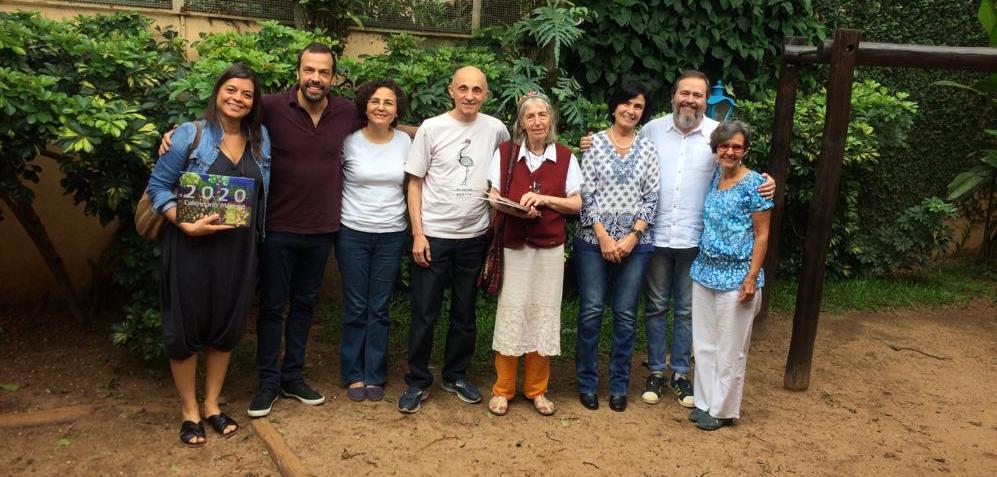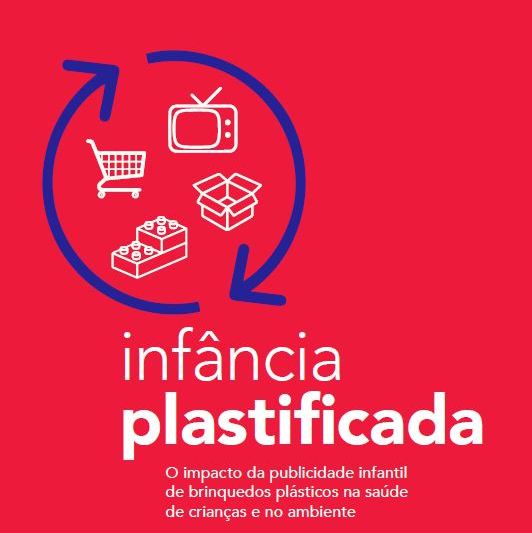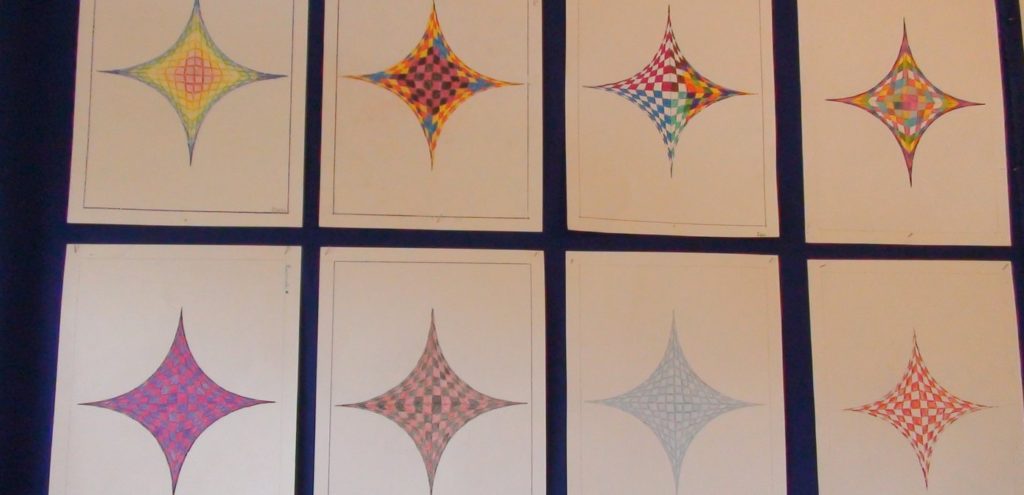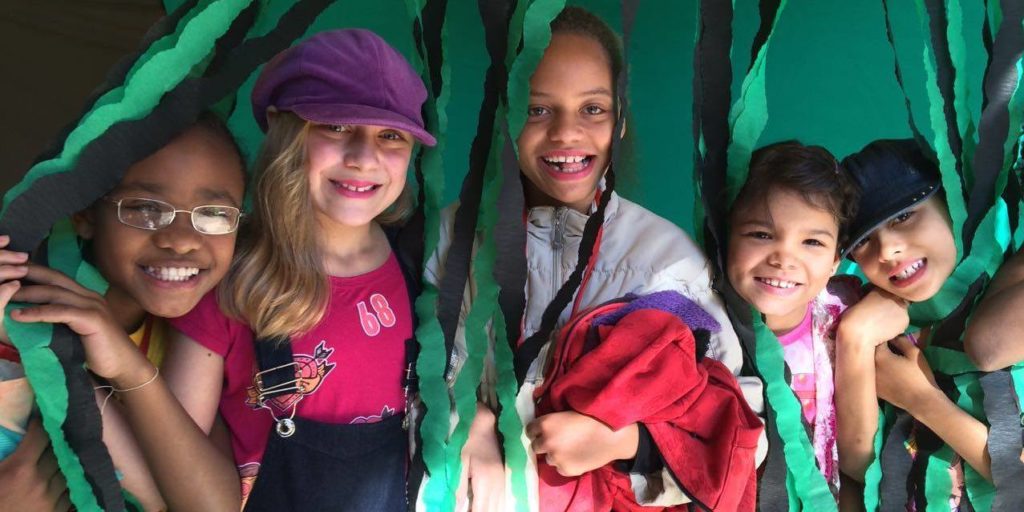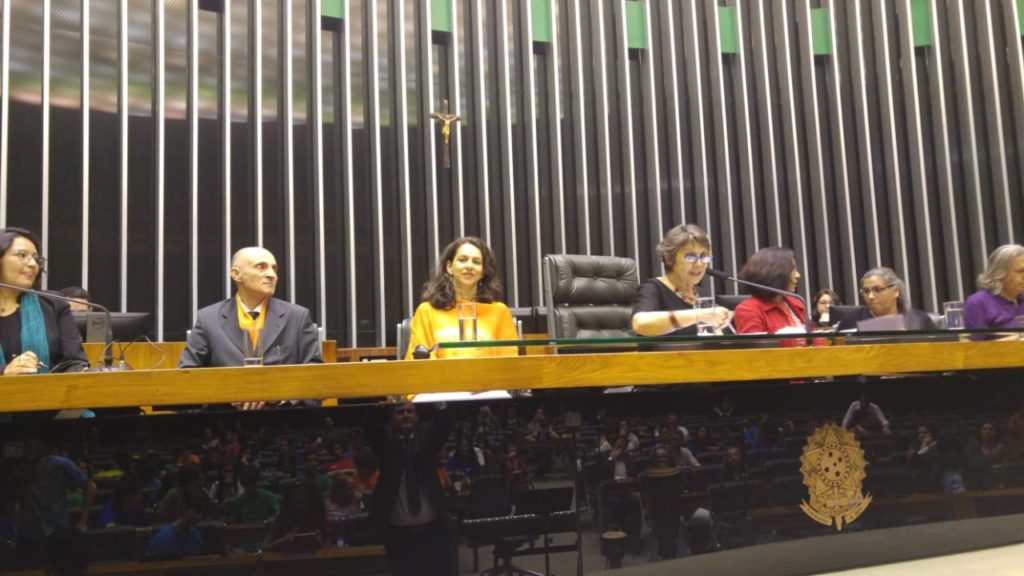 Article by Rubem Alves
Article by Rubem Alves
Image: Casa da Mata School – Imbassaí BA
“Out of the abundance of the heart the mouth speaks”: This is a saying of Jewish wisdom found in the holy scriptures.
It could well be the summary explanation of what psychoanalysis tries to do: listen to what the mouth says in order to get to what the heart feels. It happens to me. Each text is a revelation of the writer's heart. Because my heart was filled with something that my granddaughter Camila, 11 years old, told me. What she said made my heart ache. As a result, I keep thinking and saying the same thing over and over.
Camila was in the TV room alone, crying. I went to talk to her to find out what was going on. And this is what she told me:
– “Grandpa, when I see a person suffering, I suffer too. My heart goes with her heart.”
I realized that Camila's heart knew what is called “compassion”. Compassion, in its etymological sense, means “to suffer with”. I am not suffering, but I see a person suffering. Then I suffer with her. I put the other inside me. This is the meaning of love: having the other within us. The apostle Paul wrote that I can give everything I have to the poor, but if I lack love, I will be nothing, because I can give with my hands without the heart feeling it.
What good is knowledge without compassion?
All the atrocities that characterize our times were carried out with the complicity of scientific knowledge.
Compassion is a way of feeling. That's where ethics comes from.
Someone went to St. Augustine for advice on what to do in a given situation. He replied curtly and definitively:
- "Love and do what you wish".
So isn't it obvious? If I have compassion, I can do no harm to anyone.
Fernando Pessoa wrote a short poem in which he describes his compassion.
Please read slowly:
– “That bush withers, and part of my life goes with it. In everything I looked, I was in part. With everything I've seen, what happens, I pass. Nor does it distinguish the memory of what I saw from what I was.” Compassion for a bush… He explains this mystery of the human soul by saying that “in everything I looked at, I was in part. With everything I've seen, what happens, I pass…”. His eyes, moved by compassion, made him a participant in the luck of the little bush.
I already knew that, but it had never filled my heart to the point of hurting. It hurt because I linked Camila's speech to this sadness that is happening in Brazil. The corrupt are men who went through schools, they are carriers of a lot of knowledge. Having so much knowledge, what do they lack?
They lack compassion. Lack of compassion is a disturbance of the gaze.
We look, we see, but the thing we see is outside of us. I see old people and I can even write a thesis about them if I'm a university professor, but the old man's sadness is his alone, it doesn't enter me. I sleep well. Our forests are slowly turning into deserts, but that doesn't make me suffer. I don't feel them like a wound in my flesh.
I see children begging at traffic lights, but I don't feel like a child begging at traffic lights. I see my students in the classrooms, but my duty as a teacher is to give the program and not feel what my students are feeling. What good is knowledge without compassion?
All the atrocities that characterize our times were carried out with the complicity of scientific knowledge. It seems that the intelligence of the bad is more powerful than the intelligence of the good. We know how to teach knowledge. There's a lot of science written about this. I don't remember, however, any pedagogical text that proposes to teach compassion. Perhaps Janusz Korczak's “How to Love a Child” booklet – but Korczak is an exception. He knew that in order to teach a child something, you must first love him. Korczak was a romantic. That's why I love him. Then I asked myself a pedagogical question:
-“How to teach compassion?”.
Talking about it with my daughter Raquel, an architect, she remembered an incident from her early school years, when she was still a seven-year-old girl. It would be the cleaning lady's birthday, a woman everyone loved. The class gathered to choose their gift. He unanimously won that, on his birthday, the children would do their cleaning work. Raquel told me that the cleaning lady cried.
I know that children learn with a special look, the look of their teachers. They know when teachers look at them with the same eyes with which Fernando Pessoa looked at the bush when he wrote the poem. I also know that stories provoke compassion when the reader identifies with a character. I know of a little boy who started crying at the end of the story “The Duckling Who Didn't Learn to Fly”. He had compassion on the duckling. She identified with him. It will carry the duckling within itself, although the duckling does not exist.
We read stories to children and to ourselves not only to teach our language but also to teach compassion. But I'm still lost.
I need you to help me. How can compassion be taught?


